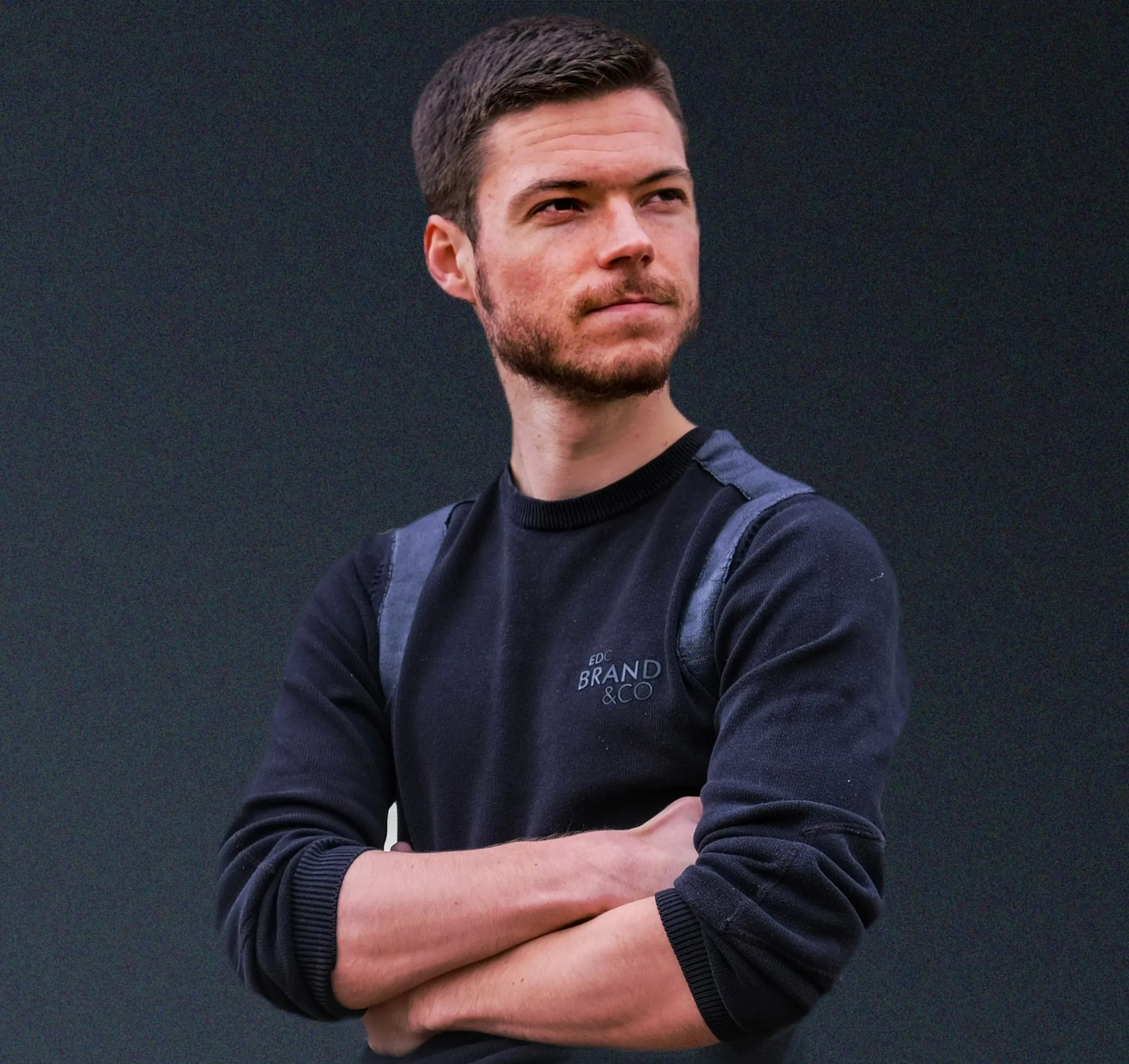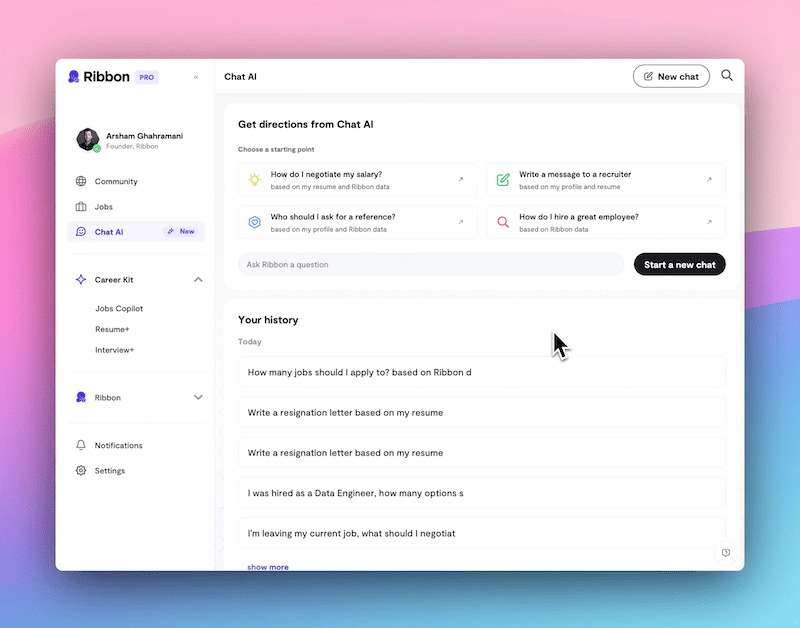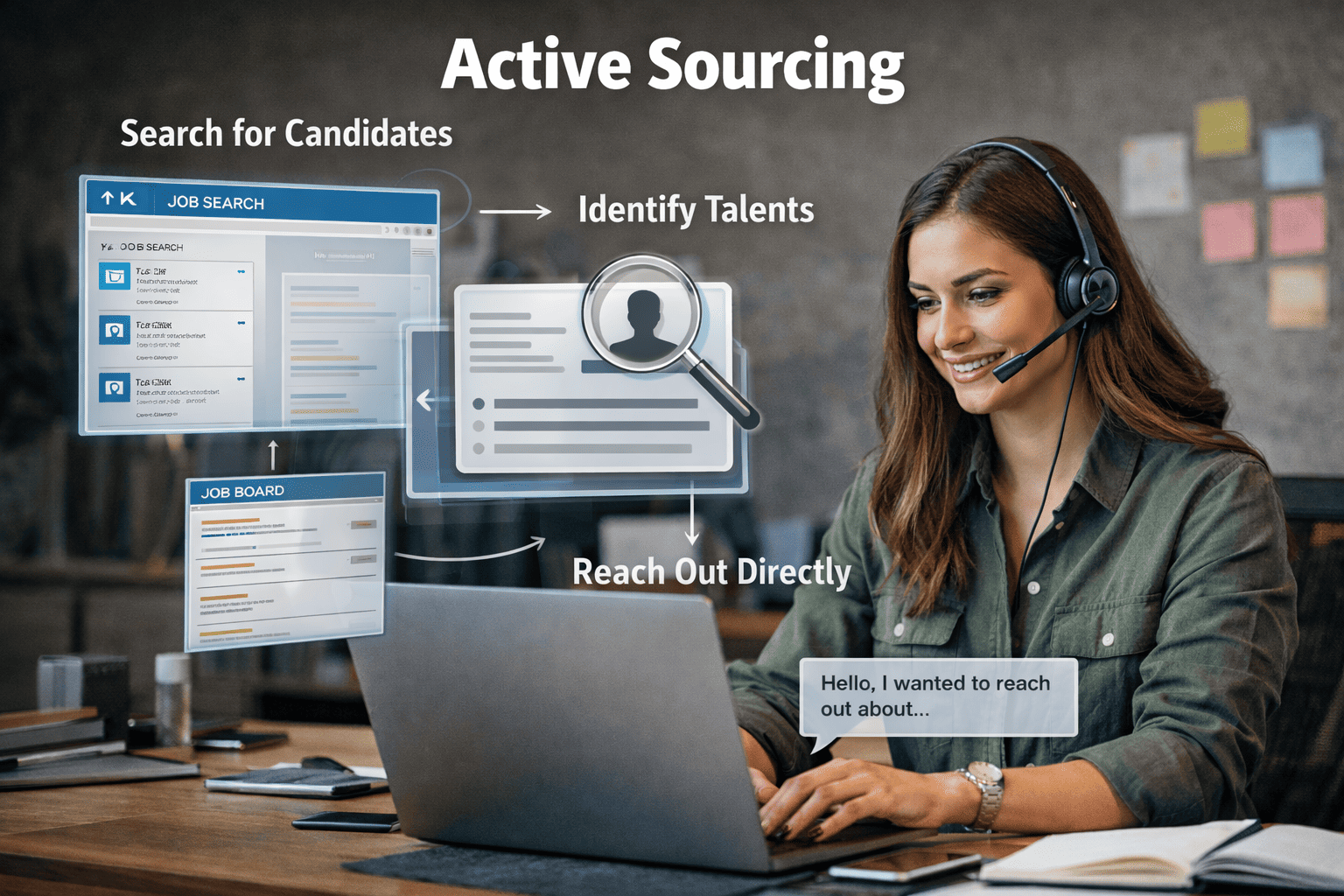The Different Types of Interviews Compared

As a recruiter, you're constantly looking for the best way to evaluate and select candidates.
With so many interview methods to choose from, how do you know which one is best?
Whether it's a structured, informal or group interview, each technique has its own specificities and benefits.
In this article, we break down the pros and cons of each type of interview, to help you choose the most-fitted approach.
1. Screening or Phone Interview

Overwhelmed by resumes? Don't worry, a screening interview can help.
First of all, it's fast. A 10-15 minute call is all it takes. You check the key information on the resume, the motivation, the understanding of the position. No long speeches, just the essentials. And it's fast : no meeting room to book, no travel. Just you, your phone, and off you go!
Pros:
- Fast turnaround: A 10-15 minute call is all it takes to evaluate a candidate. Ideal for quickly sorting applications.
- Cost-effective: No room to book, no travel. A significant time and money saver.
- Efficient initial screening: You check key information, motivation, understanding of the position. This quickly identifies potential candidates for a more in-depth interview.
Cons:
- Limited interaction: You don't pick up on non-verbal signals, physical reactions, which are often revealing face-to-face.
- Risk of hasty judgment: With limited time and no visual interaction, it can be easy to misinterpret the candidate's answers or personality.
- Dependence on communication quality: Network problems, poor sound quality... These little technical hiccups can impact the fluidity of the exchange.
Tip : Take detailed notes during the call, not just "yes" or "no", but your impressions, key words. This will help you remember the candidate better when evaluating the files.
2. Structured interviewing
The structured interview is proven to be the fairest and most effective type of interview to date.
Structured interviews are easier to prepare than you think: a list of standardized questions, the same for all candidates. You evaluate everyone on the same criteria, in complete fairness.
Pros:
- Enhanced objectivity: By asking everyone the same questions, you minimize personal bias.
- Ease of comparison: As you evaluate all candidates on the same criteria, comparing them becomes child's play.
- Clarity and efficiency: Each question has a precise purpose. You get straight to the point, no detours.
Cons:
- Rigidity: Sometimes, this strict structure can get in the way of revealing the candidate's unique personality.
- Less spontaneity: Candidates may feel they're in too formal a setting and fail to show their true selves.
- Potential for prepared answers: Candidates may anticipate conventional questions and prepare ready-made answers.
To find out more, see our article on the subject.
3. The Semi-Structured Interview

Do you like structure, but with a pinch of freedom? Then the semi-structured interview is for you! It's a balance between strict questioning and free discussion. The perfect way to boost your recruitment efforts.
How does it work? You have a list of prepared questions, yes, but you're ready to explore, to disgress depending on the candidate's answers.
Pros:
- Perfect balance: You keep control with your questions, but leave room for surprises.
- Deepening: If a point seems interesting, dive deeper. It's an opportunity to uncover hidden facets of the candidate.
- Flexibility: Each interview is unique. You adapt to the dynamics of the conversation, making the exchange more natural and fruitful.
Cons:
- Requires preparation: You need to prepare your questions, but also be ready to improvise. Not always easy!
- Risk of drift: With freedom comes the risk of straying from important topics.
- Delicate balance: Too much freedom, and you lose track; too much structure, and you miss valuable insights.
4. The Informal Interview
Imagine: a cup of coffee, a croissant, a relaxed conversation... Doesn't sound like a typical interview, does it? Yet it's a tool in your recruiter's arsenal: the informal interview. There's no intimidating office here, just a relaxed setting in which to get to know your candidate better.
How does it work? Meet the candidate in a less formal setting - a café, a lunch, a walk. The idea is to break the ice, to observe how they behave in a less structured environment. You talk about the job, the company, but also lighter subjects. This gives you a unique insight into his personality and his ability to adapt to different situations.
Pros:
- Relaxed atmosphere: Less stress for the candidate, more spontaneity in answers.
- Better assessment of personality: In an informal setting, people reveal themselves more naturally.
- Observation of social skills: Important for positions requiring good interpersonal skills.
Cons:
- Less structured: Risk of disgressing from the main topic and missing key information.
- Increased subjectivity: Personal impressions may influence your judgment more than in a formal setting.
- Potential for misunderstanding: The candidate could misinterpret the intention or nature of the interview.
5. Group Interview

Are you looking to assess the social and professional skills of your candidates? That's what group interviews are for!
In a group interview, you ask questions, suggest problems to solve, or initiate discussions. You watch. Who's taking the lead? Who collaborates well? Who stays silent? It's an interview where you can observe the roles each of your candidates takes on.
Pros:
- Revealing group dynamics: You see how candidates interact, collaborate, and manage conflict.
- High-volume efficiency: Ideal when you have a lot of candidates to assess in a short time.
- Identification of natural leaders: Leadership personalities emerge naturally in this setting.
Cons:
- Intimidating for some:Candidates less at ease in a group may not show their true potential.
- Influence of strong personalities: Risk that some candidates will dominate the conversation, overshadowing others.
- Complexity in assessment: Judging several people at once requires great care and objectivity.
6. The Chain Interview

In the chain interview, the candidate meets several interviewers, one after the other, in a dynamic sequence.
Each interviewer focuses on a specific aspect: technical skills, corporate culture, personality and so on.
Pros:
- Multiple perspectives: Each interviewer brings his or her own point of view, enriching the assessment.
- Comprehensive assessment: You examine the candidate from every angle, reducing the risk of unpleasant surprises.
- Team involvement: Employees who take part in interviews become more involved in the integration of the newcomer.
Cons:
- Can be exhausting: For the candidate, back-to-back interviews can be intense and stressful.
- Requires good organization: Coordinating several interviewers requires logistics and time.
- Risk of redundancy: If interviewers don't coordinate, they may ask the same questions, which can be tiresome for the candidate.
7. Job Dating
Ever heard of speed dating? Job dating is much the same: fast, straightforward and efficient.
The idea is simple: meet as many candidates as possible in as little time as possible. You have, say, 5 to 10 minutes per candidate. That's short, but it's enough to capture the essence of each person. You ask quick, focused questions, and trust your instincts.
Pros:
- Maximum efficiency: Perfect for meeting a large number of candidates in a short space of time.
- Decisive first impression: You quickly assess whether the candidate matches the company's atmosphere and needs.
- Time-saving: A quick way to filter candidates before more in-depth interviews.
Cons:
- Superficial: With so little time, it's hard to go deep.
- Intense pressure: Candidates have to sell themselves in record time, which isn't comfortable for everyone.
- Limited time: You could miss a good candidate because of the limited format.
8. Situational interview
In the situational interview, the candidate is immersed in a real-life work context.
Instead of just talking about what they can do, candidates have to show it. Whether it's solving a specific problem, taking part in a project simulation, or carrying out a concrete task, they have to act. It's a unique opportunity to see how they react under pressure, handle the unexpected, and work as a team.
Pros:
- Practical assessment of skills: You see first-hand how the candidate applies his or her skills in a real-life work context.
- Realism: Provides an accurate snapshot of how the candidate will fit in and perform within your team.
- Observation of problem-solving skills: You discover not only what the candidate can do, but also how they think and adapt.
Cons:
- Requires elaborate preparation: Setting up a realistic simulation requires time and resources.
- Can be stressful for candidates: Some may not show their best profile under the pressure of a test situation.
- Not suitable for all positions: Some skills, especially intellectual or creative, may be difficult to assess in such a direct setting.
9. Video Interviews

The video interview is the interviewing method of the 21st century. In the comfort of your office or living room, you meet candidates from the other side of the screen. Practical, isn't it? The world is just a click away.
The interview takes place via videoconferencing tools such as Zoom, Skype or Teams. You see and hear the candidate, almost as if they were face-to-face. You can ask questions and exchange ideas, all through a screen.
Pros:
- Flexibility: No geographical constraints. You can recruit from anywhere, and candidates can respond from home.
- Saves time and money: Saves on travel, both for you and the candidate.
- Practical: Easy to organize, all you need is a good internet connection and a computer or smartphone.
Cons:
- Less personal interaction: Subtle nuances of body language can be lost behind the screen.
- Dependence on technology: Connection, camera or sound problems can disrupt maintenance.
- Less controlled environment: Unforeseen interruptions may occur, both on your side and the candidate's.
10. Asynchronous interviewing
With the asynchronous interview, you send a series of questions to candidates, and they record their answers on video. Candidates can do this whenever and wherever they want.
These videos are then sent to you for evaluation. You can watch them at your own pace, replay them and analyze them.
Pros:
- Flexibility for both recruiter and candidate: Everyone manages their time as they wish, with no scheduling constraints.
- Ability to re-evaluate answers: You can review the videos several times to better assess answers.
- Reduced stress for the candidate: They can record their answer in a familiar environment, without the pressure of the instantaneous.
Cons:
- Lack of real-time interaction: You can't ask follow-up questions or clarify points as you answer.
- Variable quality of recordings: Technical problems can affect video quality.
- Less personal: The human connection is reduced, sometimes making it difficult to assess the candidate's personality.
How to choose the right type of interview?
Faced with such a variety of interviewing techniques, how do you choose the right one?
Your choice will depend on several factors:
- The position: Each job has its own specificities. For a creative position, an informal interview can get the word out. For a technical position, a situational interview will help you assess specific skills through an exercise. And if it's teamwork that counts, why not a group interview?
- Your company culture: your recruitment method should reflect the spirit of your company. A dynamic startup? Semi-formal and informal interviews with the founders can be interesting. A traditional company? Structured or semi-directive interviews with managers would probably be more suitable.
- Efficiency: if you have dozens of candidates, a pre-qualification telephone interview can help to skim. For more specific needs, take the time for more in-depth interviews.
Noota, Your Interview Assistant

What if you had a super-assistant for your interviews?
With Noota, no more messy notes or annoying oversights. As you talk, our interview assistant records, analyzes and synthesizes. You have all the key information at your fingertips, organized and ready for your post-interview decision.
Noota's key features:
- Automated interview scheduling: Noota schedules your appointments, reminds you of your interviews, and prepares the agenda.
- Question reminder: No more rummaging through your papers. Noota presents you with the important questions at the right time.
- Response trackiing: Noota records what the candidate says, allowing you to focus on the interaction.
- Detailed report: After the interview, access a comprehensive summary, with key points and relevant analyses.
Want to structure your interviews better? Try our recruitment assistant for free.
Leverage your Interview Data
AI interview notes, scorecard, follow-up, ATS integration, and more...
Related articles

Forget note-taking and
try Noota now
FAQ
In the first case, you can directly activate recording as soon as you join a videoconference.
In the second case, you can add a bot to your videoconference, which will record everything.
Noota also enables you to translate your files into over 30 languages.

.svg)
.svg)

.webp)

.png)


.svg)
